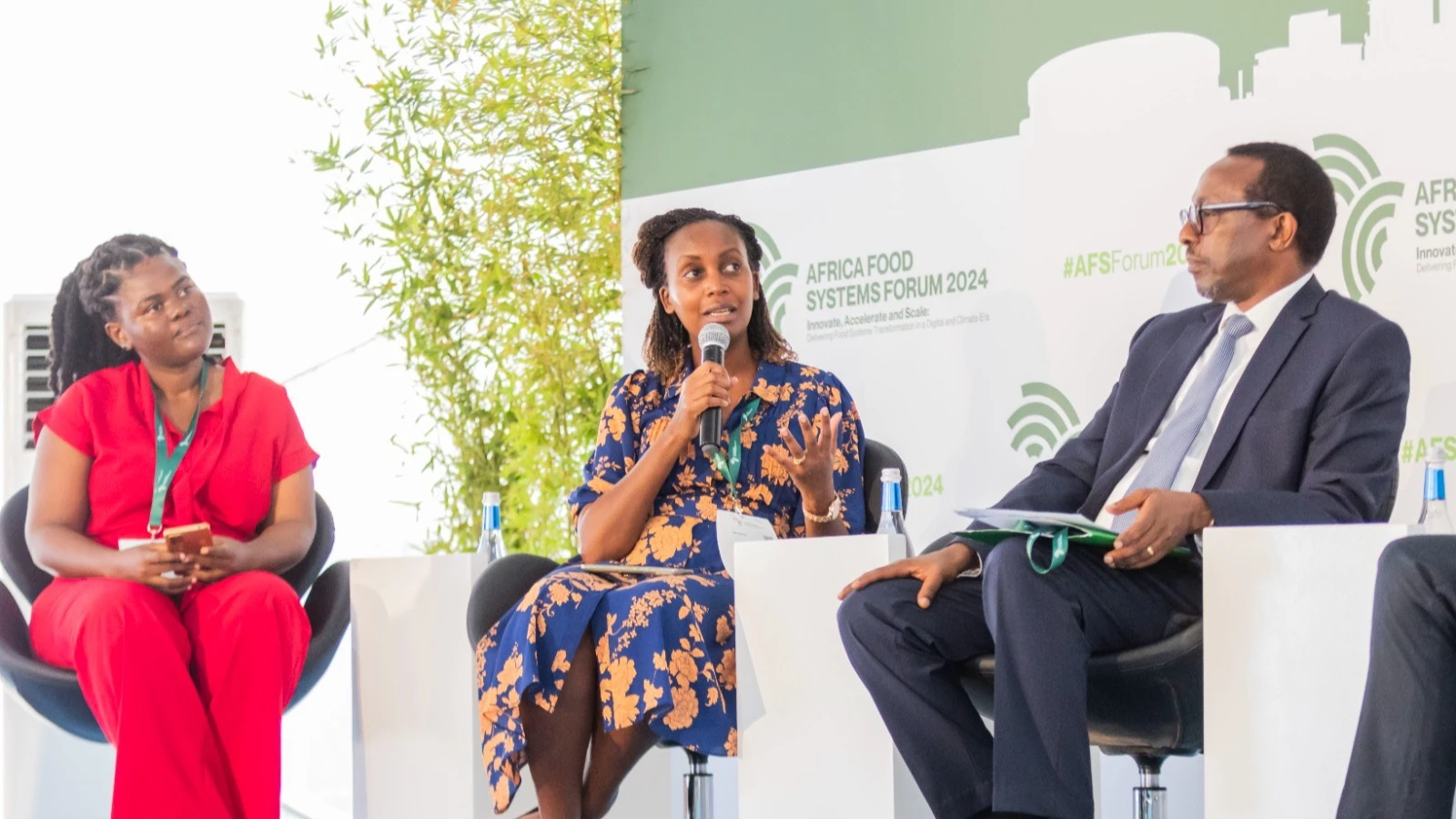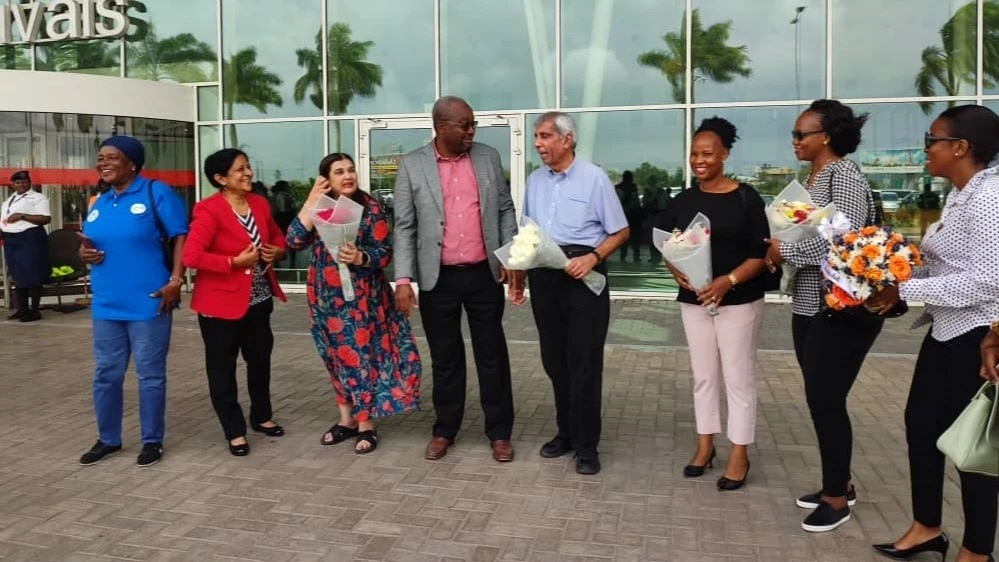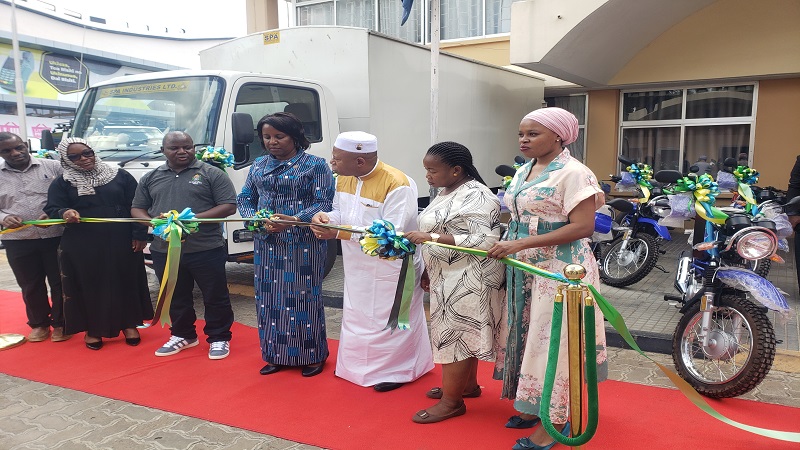Farmers, experts root for increased soil testing technology for agri-transformation

Kigali, Rwanda. Agricultural experts and farmers have made a case for increased finance to scale up soil health testing technology to ensure that fertilizers and seeds are applied on land that is suitable for them.
The call was made at the ongoing Africa Food Systems Forum in Kigali, where over 5,000 delegates gathered to discuss agriculture transformation and ways to improve food security in week-long deliberations.
Soil testing technologies are important in optimizing crop production, protecting the environment from contamination excessive use of fertilizers, the experts said.
Reliable testing capabilities also help in diagnosing of plant problems, informs farmers on ways to improve nutritional balance of the soil.
Knowing the nutrient content of the soil allows farmers to avoid under or over-fertilization, the experts observed. With the right technologies in use, they said that the African continent can reduce its dependence on food imports.
Simone Sala, the Director of Global Soil and Ecosystem Solutions at Varda AG, said they are partnering with YARA, a fertilizer distribution and agri-knowledge sharing company, to scale up data on soil health in African countries, including Tanzania.
He said their project called SoilHive, a digital platform, consolidates and harmonizes soil data from public and private data sources based on voluntary contributions.
He noted that the digital tools and crop solutions help in efficient use of water and timely application of the nutrients.
Sala added that there is need for enhanced finance to modernize agriculture including producing soil data for farmers.
"There is so little finance dedicated to the food sector and we need much more. This is one of the first challenges affecting particularly farmers. They will need more resources to be able to improve the way they farm in a sustainable way," he said.
Carole Mumo, Manager, Social Impact, Yara Africa, separately highlighted Yara’s initiatives accelerating youth and women's participation in agriculture. She also spoke about the policy interventions required to leverage the untapped potential of youth and women to sustain food system transformation, and the power of initiatives like Go-Gettaz in encouraging more young people to innovate in the sector.
Omondi Kadish, Senior Manager, Digital and Commercialization, Yara Africa, discussed what digital transformation in the agri-food sector entails, and the role that digitalization can play in scaling up investment in innovation and research. He said Yara is leveraging digital technologies to enhance adoption of agricultural knowledge and farming solutions across Africa.
Speaking on Tuesday, Alexandre Rutikanga, the Chief Technical Advisor in the Ministry of Agriculture and Animal Resources for Rwanda, noted that increased use of technology in agriculture holds the key to the commercialization of the sector, on which more than 85 per cent of Rwandans rely.
“We believe that technology has a critical role in steering a vibrant, commercial, and modern agricultural sector that sustainably supports Rwanda’s development, its national aspirations for food security, and long-term goals,” Rutikanga said.
Florence Sifa Sangwa, a farmer who attended the food summit, said that insufficient use of soil health testing technology in the country could lead to lower agricultural productivity as farmers are not well informed about the right seeds and the amount of fertilizers needed in the soil.
“The technology to test soil health to know the nutrients needed before planting the seeds and applying fertilizers is available but it is used by a limited number of farmers,” Sangwa noted.
“Government, partners and financiers should join efforts to help farmers have access to these technologies, which will lead to more yields,” she said, adding that soil health testing capabilities are needed to faster agriculture modernization.
As fertilizers factories and seed multipliers are increasingly their investment, Sangwa said there was hope among farmers that investment in soil health technologies will also increase.
Top Headlines
© 2025 IPPMEDIA.COM. ALL RIGHTS RESERVED

























